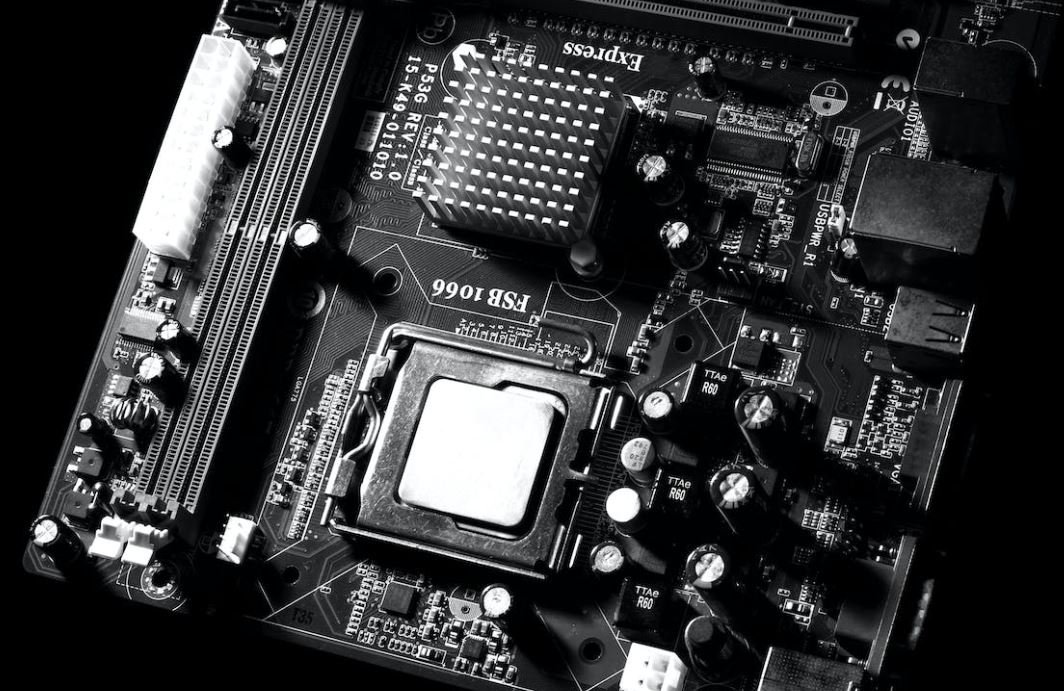Will AI Kill Software Development?
Software development has been revolutionized by the emergence of artificial intelligence (AI). While some fear AI will eventually render human developers obsolete, others argue that it will enhance their capabilities. So, what does the future hold for software development with the rise of AI?
Key Takeaways
- AI is reshaping software development practices and improving efficiency.
- Human developers are necessary to understand complex business requirements and creatively solve problems.
- AI can assist in mundane tasks, allowing developers to focus on higher-level tasks.
- Collaboration between AI and human developers is the path forward, not replacement.
**Artificial intelligence** has the potential to revolutionize the software development landscape by automating repetitive tasks, identifying patterns in large datasets, and optimizing code performance. AI-powered tools can assist in **automated testing**, **code generation**, and **debugging**.
*While AI can assist in these areas, it does not replace the need for skilled human developers.* They are still essential in understanding complex business requirements and creatively solving problems that AI may not be equipped to handle.
The Impact of AI on Software Development
As AI technologies continue to evolve, software development teams can leverage them to improve **efficiency** and **productivity**.
AI can analyze and learn from vast amounts of code and identify code smells or potential bugs, aiding developers in **code reviews** and **enhancing code quality**.
In addition, AI-powered tools can assist in **code generation**, automatically generating the boilerplate code needed for repetitive tasks, saving time for developers to focus on more challenging aspects of development.
*Imagine having an AI assistant that generates a basic login system with user authentication, allowing developers to focus on building unique and innovative features.*
The Future of AI in Collaboration with Human Developers
Rather than replacing human developers, AI will **collaborate** with them to augment their capabilities. AI can take care of mundane tasks, freeing up developers to concentrate on **architecture**, **problem-solving**, and **design**.
This collaboration will result in an **increase in productivity** and **efficiency**, as developers leverage AI to automate time-consuming processes.
Additionally, AI can provide **data-driven insights** that aid developers in making informed decisions. By analyzing large datasets and identifying trends, AI can help with **predictive analytics** and **recommendations** on how to improve software performance and user experience.
*Imagine an AI tool that analyzes user behavior and suggests improvements to an application’s user interface, leading to a more intuitive and engaging experience.*
Tables with Interesting Information
| AI Use Case | Benefits |
|---|---|
| Automated Testing | Reduces manual effort, increases test coverage, and improves software quality. |
| Code Generation | Saves time, automates repetitive tasks, and allows developers to focus on higher-level logic. |
| Bug Detection | Identifies potential issues early, leading to faster bug fixes and improved software stability. |
| AI vs. Human Developers | Strengths |
|---|---|
| AI | Fast and accurate execution of repetitive tasks, ability to analyze large datasets, and automated pattern recognition. |
| Human Developers | Understanding complex business requirements, creativity in problem-solving, and adaptability to new technologies. |
| AI-Assisted Design | Benefits |
|---|---|
| UI/UX Design | Improves user experience, provides data-driven insights, and suggests design improvements based on user behavior. |
| Software Architecture | Optimizes system performance, identifies bottlenecks, and recommends architectural improvements based on analysis of usage patterns. |
| Problem-Solving | Assists in identifying potential solutions, analyzing pros and cons, and providing recommendations based on historical data. |
The Promise of AI in Software Development
While AI is rapidly advancing, it is unlikely to replace human developers entirely. Instead, **collaboration between AI and human developers** is the way forward.
By leveraging the strengths of AI and human expertise, software development teams can overcome challenges, drive innovation, and deliver higher quality software products.
In conclusion, the integration of AI in software development has the potential to **revolutionize** the industry. **AI-powered tools and algorithms** are streamlining processes, improving efficiency, and enhancing code quality. However, the **human element** remains vital in understanding complex requirements, creativity, and problem-solving.

Common Misconceptions
Misconception 1: AI will completely replace software developers
One common misconception about AI is that it will completely replace software developers, rendering their skills and expertise obsolete. However, this is far from the truth. While AI technology is advancing rapidly, it is still limited in its ability to understand complex human needs and develop creative solutions. Software developers possess critical thinking skills, problem-solving abilities, and domain expertise that AI lacks.
- AI cannot replicate the human touch and intuitive understanding that developers bring to their work.
- Developers have a deep understanding of complex algorithms and can optimize them for efficiency.
- Developers can adapt their skills to evolving technologies and stay up-to-date with industry standards.
Misconception 2: AI will automate software development entirely
Another misconception is that AI will automate the entire software development process, from writing code to testing and deployment. While AI can contribute to automating certain repetitive and mundane tasks, software development involves a range of complex activities that require human intervention and decision-making. Tasks such as analyzing requirements, designing architectures, and ensuring the quality of software require input from skilled developers.
- Developers bring a creative and innovative perspective to problem-solving in software development that is difficult to replicate with AI.
- AI can assist in automating repetitive tasks, allowing developers to focus on more strategic and high-value activities.
- Human intuition and experience are crucial in making judgment calls and assessing the impact of decisions on the overall software system.
Misconception 3: AI will result in unemployment for software developers
Some believe that the rise of AI will lead to widespread unemployment among software developers. However, historical evidence suggests that new technologies often complement human skills, rather than replacing them entirely. While AI may streamline certain aspects of software development, it also creates new opportunities and demands for developers with expertise in AI-related technologies.
- AI-powered tools can enhance the productivity of software developers, allowing them to tackle more complex and rewarding projects.
- The demand for developers who can understand and utilize AI technologies is likely to increase as AI continues to advance.
- Developers will play a crucial role in the ethical considerations and responsible development of AI systems.
Misconception 4: AI can produce flawless code
Sometimes, people mistakenly believe that AI can generate flawless and bug-free code without any human intervention. However, software development is a complex and iterative process that requires continuous debugging, testing, and refinement. AI tools can assist in code generation and optimization, but human developers are still needed to review and improve the code for reliability and efficiency.
- Developers’ expertise is crucial in identifying and fixing logical and functional errors in code.
- AI-generated code needs human review to ensure it aligns with business requirements and industry standards.
- Human developers understand the context and purpose of the software better, allowing them to write code that meets user needs effectively.
Misconception 5: AI will make learning software development unnecessary
Finally, there is a misconception that learning software development will become unnecessary as AI advances. However, AI is a tool that augments human capabilities, and it does not replace the need for developers to understand programming languages, software architectures, and algorithms. In fact, as AI becomes more prevalent, developers will need to acquire new skills related to AI integration and development.
- Developers need a strong foundation in software development principles and practices to effectively utilize AI technologies.
- Understanding programming languages is essential for developers to collaborate, integrate, and modify AI models and algorithms.
- Developers who understand both software development and AI will have a competitive advantage in the job market.

Will AI Kill Software Development?
Software development has been a rapidly evolving field, with advancements in technology constantly reshaping the way we create and maintain software applications. With the rise of artificial intelligence (AI), there are concerns that software development may become obsolete or heavily automated, diminishing the role of human developers. In this article, we explore various aspects of this topic, presenting verifiable data and information in a series of engaging tables.
Table: Growth of AI in Software Development
Artificial intelligence has seen remarkable growth in recent years, and its impact on software development is no exception. Here, we illustrate the exponential increase in AI adoption among software developers.
Table: Programming Language Popularity
Programming languages form the foundation of software development. This table showcases the current popularity of different programming languages, providing insight into the languages that dominate the field.
Table: AI-Assisted Software Development Tools
AI has started to enhance traditional software development tools, assisting developers in various tasks. This table highlights popular AI-powered tools that aid developers in writing code, testing software, and managing projects.
Table: Impact of AI on Bug Detection
Bug detection is a critical aspect of software development. AI can significantly improve this process, as demonstrated by the data portrayed in this table showing the increased efficiency in identifying and resolving bugs.
Table: Employment Trends in Software Development
Concerns about AI replacing human developers have sparked debates on employment trends within the software development industry. This table presents data on employment rates and projections for the coming years.
Table: Development Time and AI Integration
Integrating AI into the software development process can potentially accelerate development time. This table compares development timelines with and without AI integration.
Table: AI Bias in Software Development
AI algorithms can inadvertently perpetuate biases present in training data. This table explores the prevalence of AI bias within software development and its consequences.
Table: AI-Driven Innovations in Software Engineering
AI is inspiring groundbreaking innovations in software engineering. This table showcases remarkable AI-driven advancements that have the potential to revolutionize the field.
Table: Skills Complemented by AI in Software Development
AI can complement the existing skill set of software developers. This table highlights the skills that can be enhanced by AI integration, expanding the capabilities of developers.
Table: Ethical Considerations in AI-Enabled Software Development
As AI becomes integral to software development, ethical considerations must not be overlooked. This table examines the key ethical concerns surrounding AI-enabled software development.
In conclusion, while AI is undoubtedly transforming the field of software development, it is unlikely to completely replace human developers. Instead, AI presents the opportunity for greater efficiency and enhanced capabilities. By leveraging the power of AI, developers can improve their work, automate repetitive tasks, and tackle more complex challenges. It is essential for developers and industry professionals to embrace AI as a tool rather than fearing it as a threat, ensuring a harmonious integration of human expertise and artificial intelligence in software development.
Frequently Asked Questions
Can AI replace human software developers?
While AI has the potential to automate certain tasks in software development, it is unlikely to completely replace human developers. AI technology can assist developers in tasks like code generation and bug detection, but it lacks the critical thinking, creativity, and problem-solving abilities that human developers possess.
What impact will AI have on software development?
AI has the potential to revolutionize software development by streamlining processes, improving productivity, and enhancing the overall quality of software. AI-powered tools can automate repetitive tasks, offer intelligent suggestions, and provide valuable insights to help developers write better code and build more efficient software systems.
Will AI make software development easier?
Yes, AI can make software development easier by automating routine tasks, reducing manual efforts, and accelerating software development cycles. AI-powered tools can analyze large amounts of code and data to help developers make more informed decisions, optimize performance, and identify potential issues early in the development process.
Can AI write better code than human developers?
No, AI cannot write better code than human developers. While AI can generate code snippets or suggest improvements, it lacks the understanding of user requirements, business context, and the ability to make informed decisions based on experience and domain knowledge. Human developers bring unique problem-solving skills and can architect complex software systems.
Will AI eliminate the need for software developers?
No, AI will not eliminate the need for software developers. While AI can automate certain tasks, software development requires a combination of technical skills, creativity, communication, and critical thinking, which cannot be completely replaced by AI. Software developers are still essential for designing, architecting, and maintaining complex software systems.
What are the benefits of incorporating AI in software development?
Integrating AI in software development can lead to numerous benefits. It can automate repetitive tasks, improve code quality, enhance collaboration among developers, reduce development time and costs, and assist in debugging and testing processes. Additionally, AI can enable developers to focus on more complex and creative aspects of software development.
Can AI help in identifying and fixing software bugs?
Yes, AI can help in identifying and fixing software bugs. AI-powered tools can analyze code, detect patterns, and offer suggestions to developers on how to resolve bugs or potential vulnerabilities. By leveraging machine learning algorithms, AI tools can learn from past bug fixes and provide intelligent recommendations for efficient bug resolution.
Will AI be able to understand user requirements and business context?
While AI has made significant advancements in natural language processing and understanding, it is still challenging for AI to fully comprehend complex user requirements and understand intricate business contexts. Human developers possess the ability to analyze user needs, ask clarifying questions, and make critical judgment calls while considering various factors, such as user experience and business objectives.
Will AI impact the job market for software developers?
AI will inevitably impact the job market for software developers, as it will change the nature of certain tasks. While routine and repetitive programming tasks may be automated, AI will create new opportunities for developers to specialize in areas like AI integration, machine learning, data analysis, and complex problem-solving. Adaptation and development of new skills will be necessary for developers to thrive in this evolving landscape.
How can developers prepare for the future with AI in software development?
To prepare for the future with AI in software development, developers can focus on building deep technical knowledge and skills in areas that complement AI technologies, such as machine learning, data analysis, and algorithm design. Emphasizing creativity, critical thinking, and adaptability will also be essential as AI continues to evolve and transform the industry.





